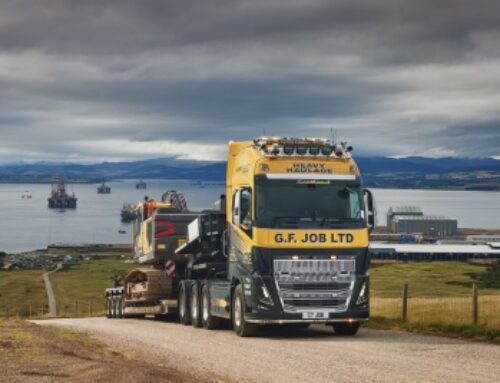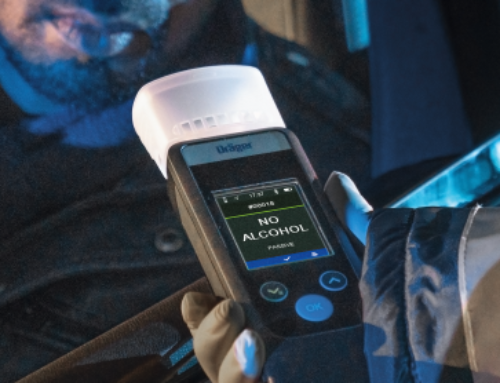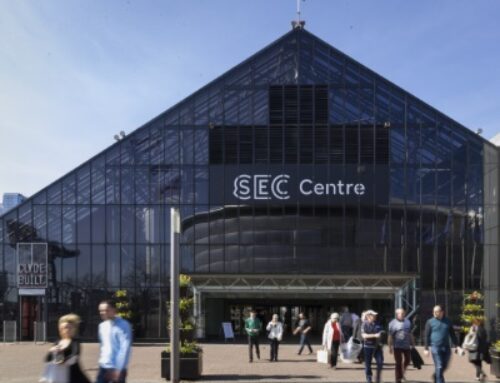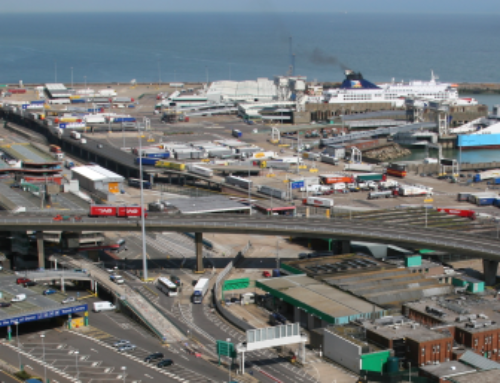Cool carriers
 Steve Banner caught up with temperature control specialist Carrier Transicold to discuss its latest technologies for the sector
Steve Banner caught up with temperature control specialist Carrier Transicold to discuss its latest technologies for the sector
Even though a truck might be zero-emission, there is no guarantee that any auxiliary equipment fitted to it can claim the same status.
Operating an electric tractor unit becomes less praiseworthy if the temperature-controlled trailer it hauls is equipped with a fridge unit powered by an ageing diesel-driven donkey engine coughing out fumes. Nor is it likely to endear you to urban authorities wedded to cleaner air and a quieter environment.
The need to make fridges mounted on rigids and trailers more environmentally-friendly has long been recognised by global transport refrigeration specialist Carrier Transicold. It has responded by rolling out electric products designed to address the challenge, with more in the pipeline.
Among them is Vector eCool.
A zero-emission all-electric system for trailers, it converts the kinetic energy generated by axles and brakes into electricity, which is then stored in a battery pack used to power the fridge unit. Despite the weight of the axle generator and pack, it is lighter than a diesel unit with a full tank of fuel, says Carrier.
When the trailer is stationary at, say, a regional distribution centre, eCool can be plugged into the mains. Its battery pack will be fully recharged in less than two hours, Carrier reckons.
“We’ve now sold over 200 Vector eCools in more than ten countries,” says Victor Calvo, Carrier Transicold International Truck and Trailer vice president and general manager.
 Demand is growing in Britain, with Dawsongroup taking three this year. Last year saw Scottish temperature-controlled body and trailer builder Gray & Adams have one fitted to a 13.6m demonstrator trailer.
Demand is growing in Britain, with Dawsongroup taking three this year. Last year saw Scottish temperature-controlled body and trailer builder Gray & Adams have one fitted to a 13.6m demonstrator trailer.
Aside from their environmental credentials, electric systems look set to increase in popularity in the UK with the demise of red diesel so far as fridge diesels are concerned.
Furthermore, the white diesel that now has to be used instead is both expensive and vulnerable to theft, points out Carrier’s managing director, UK and Northern Europe, Scott Dargan. A fridge unit’s fuel tank could contain as much as 200 litres – a tempting prize for thieves.
Electric systems are quieter than diesels, which can help make late-night and early-morning deliveries to premises more acceptable to slumbering neighbouring householders.
Carrier was involved in electrifying fridges over 20 years ago, says Calvo, and has seen the marketplace penetration of engineless systems in Western Europe reach 40 per cent over the past six years – at diesel’s expense.
He believes that 50 per cent of Carrier’s sales will soon be electric across all segments, and states that the company should be able to achieve a massive 1 gigaton greenhouse gas saving by 2030.
Vector eCool forms part of a family of electric packages designed with rigids as well as trailers in mind including Neos HE 200, Syberia 14 and the new Pulsor eCool.
Developed for light commercials, and capable of handling fully-frozen as well as chilled work, the last-named offers 4kW of cooling capacity and can be powered by an electric van’s traction battery, says Carrier. Doing so typically reduces its range by less than 10km, it adds.
Mention should also be made of the new Vector HE 17, which combines variable frequency drive technology on the compressor with all-electric technology.
The motor’s speed is continually altered to match the air demand with the aim of increasing efficiency.
Back in February 2016, Carrier acquired TRS Transportkoeling.
With 35 employees operating out of a 5,000sq m site, and originally set up in 1988, the Noordwijk, Netherlands-based research and development centre has contributed heavily to the design of Carrier’s engineless line-up, including models such as Syberia and Iceland.
With its own laboratory and workshop, it is continuing to do so, building prototypes and testing them in practical working environments.
“We are focussed on searching for healthy, sustainable and safe solutions and we like to invest in disruptive technology,” says Calvo.
 It is an approach that Volta Trucks clearly welcomes. The industry newbie has settled on Carrier Transicold as the sole supplier of refrigerated equipment for the electric Volta Zero 16-tonner, which is being offered with the electric under-mounted Iceland eCool.
It is an approach that Volta Trucks clearly welcomes. The industry newbie has settled on Carrier Transicold as the sole supplier of refrigerated equipment for the electric Volta Zero 16-tonner, which is being offered with the electric under-mounted Iceland eCool.
It operates in conjunction with PowerBox, which works like an electronic power-take off. It takes energy from Zero’s driveline and converts it into the 400v AC current at 50Hz needed to run the Iceland unit.
“Our undermount unit only weighs 142kg,” Dargan points out. That is roughly half a tonne less than a typical diesel-fired undermount, he adds.
It is also worth noting that systems such as Iceland are fully hermetically sealed with the aim of minimising the loss of refrigerant gas, he says.
“With Iceland the annual loss is under three per cent compared with at least 15 per cent so far as traditional systems are concerned,” he observes.
The steady swing in favour of engineless is being embraced by UK operators.
January saw Preston-based James Hall & Co acquire three new Volvo FE 18-tonners fitted with Gray & Adams temperature-controlled bodies and Syberia MT engineless fridge systems. They are being used to make deliveries to Spar shops across the north of England.
So far as noise is concerned, Syberia operates at a PIEK-compliant level of below 60 dB(A).
While electric units are likely to require less maintenance than their diesel counterparts, the latter are likely to be around for quite some years to come; and although electric systems require less care and attention, that does not mean that they need none at all.
As a consequence, Carrier’s more-than-600 European repair and maintenance centres supported by upwards of 2,200 service engineers look unlikely to run out of work any time soon.
It offers 24/7 emergency back-up in the majority of European markets plus fixed-cost service contracts under the BluEdge banner.
They include annual temperature-control testing and certification and any regulatory checks required.
The switch to electrification is occurring in parallel with a move towards connectivity.
“The whole cold chain will be connected, and the information produced will make it easier to monitor what’s happening,” Calvo observes.
Diesel fridge units can run for several days without intervention, he points out. Their electric counterparts depend on batteries that need recharging regularly, however.
A system needs to be in place to ensure this happens so that batteries do not go flat causing temperature-controlled cargo to deteriorate.
Connectivity helps optimise equipment utilisation, contends Carrier, allows cold chain data to be shared with customers, triggers alerts if there is a problem with a refrigeration unit, and allows operators to control temperatures remotely. The aim is to achieve end-to-end visibility throughout the delivery process.
A connected cold chain clearly brings benefits – but what happens if a hostile player decides to hack it and switch the whole lot off? Chaos would ensue.
 Carrier has taken steps to minimise the risk of this happening to its Lynx Fleet connectivity platform, says Calvo. “We are as confident that it will not be hacked as any safety-conscious company can be,” he comments.
Carrier has taken steps to minimise the risk of this happening to its Lynx Fleet connectivity platform, says Calvo. “We are as confident that it will not be hacked as any safety-conscious company can be,” he comments.
While specifying Pulsor eCool and powering it from traction batteries apparently has minimal impact on a light commercial’s range, other vehicles may require ancillary battery packs.
With this in mind, Carrier has forged an alliance with, and invested in, Oporto, Portugal-based transport battery specialist AddVolt. It supplies lithium-ion batteries plus a power management system and its technology is fitted to Vector eCool.
Although the large expanse of space on the roof of a trailer lends itself to the use of solar panels, Carrier harbours doubts about their utility.
“When it comes to powering electric units, they’re not a solution on their own,” Calvo contends. “They risk getting broken by, for example, being hit by tree branches, and they get dirty.”
Dirt means their efficiency is compromised, he points out; and while they can make a contribution on sunny days, the sun doesn’t shine all that much in northern Europe in the autumn and winter.
Perhaps one of the most useful packages available from Carrier, and developed at Noordwijk, is an electro-hydraulic system called Eco-Drive.
Mount it on the back of a tractor and you can use it to drive a diesel fridge unit on a trailer while the vehicle is in motion. What you are in effect doing is making on-highway use of the electric plug-in standby system that keeps the unit running while the trailer is parked at a site waiting to be loaded or unloaded.
The diesel engine remains in place should you need it.
Launched in the UK last year, and employing a variable-displacement Bosch hydraulic pump which powers a generator, Eco-Drive delivers 400v of continuous three-phase elec-trical power, says Dargan, and can be retrofitted to certain models.
“It’s mounted on the back of the engine and Renaults, Volvos and Scanias have got the power take-off needed to drive the pump sitting there,” he observes. It can be installed in rigids as well as tractors.
Cost? From £14,000 to £16,000, and it can be fitted by a Carrier technician in about a day and a half, he says.
Not surprisingly, the demise of red diesel so far as temperature-controlled trucks and trailers are concerned has boosted its appeal, despite the price.












